
Men with asymptomatic or mildly symptomatic metastatic castration-resistant prostate cancer who are being treated with radium-223 (Xofigo) plus enzalutamide (Xtandi) can reduce their risk of fractures with the use of bone-protecting agents.

Men with asymptomatic or mildly symptomatic metastatic castration-resistant prostate cancer who are being treated with radium-223 (Xofigo) plus enzalutamide (Xtandi) can reduce their risk of fractures with the use of bone-protecting agents.

The second-generation 4-1BB bi-specific CAR T-cell therapy was efficacious and safe in treating patients with relapsed/refractory B-cell non-Hodgkin lymphoma.

Survival rates were similar between the 2 drugs, but acalabrutinib had fewer adverse events.

Nivolumab with or without ipilimumab improved survival over ipilimumab alone in patients with previously untreated advanced melanoma.

Previously treated patients with non-small cell lung cancer tended to have better responses with Retevmo than they did with prior treatments.

Adjuvant carboplatin and paclitaxel after standard cisplatin-based chemoradiation did not demonstrate improved overall survival or progression-free survival in patients with locally advanced cervical cancer.
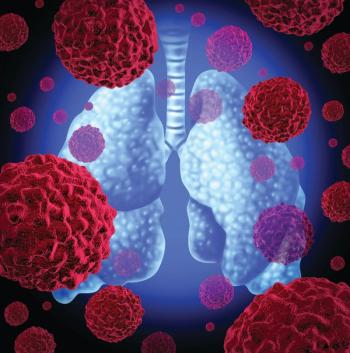
Pralsetinib elicited promising responses and tolerability in patients with RET fusion-positive non-small cell lung cancer (NSCLC), including those who were not eligible for platinum-based therapy.

Patients with BRCA1/2-mutant, early HER2-negative breast cancer at a high risk of recurrence saw a clinically meaningful benefit 1 year after standard of care when treated with olaparib.

While HPV-related cervical cancer incidence is declining, other tumors related to the virus persist.

States without Medicaid expansion tended to have poorer cancer outcomes than states with higher income limits on eligibility, according to recent research.

There is a lot of work that needs to be done to determine the optimal use for immunotherapy in patients with sarcoma.

The novel multimodal FirstSightCRC test has shown promise in identifying colorectal cancer (CRC), as well as precancerous polyps and advanced adenomas, said Shai Friedland, MD, who added that results from the blood-based assay can inform whether a patient should undergo a colonoscopy.

Patients with multiple myeloma who were obese or overweight had a trend toward slightly improved progression-free survival and overall survival outcomes compared to patients who had a normal weight, according to data from an exploratory analysis.

During his presentation, Michael A. Postow, MD, briefly reviewed the latest updates with immunotherapy and other targeted treatments in melanoma reported during the 2020 ASCO Virtual Scientific Program.

Pembrolizumab (Keytruda) demonstrated modest clinical activity in patients with advanced recurrent ovarian cancer, according to final results of the phase 2 KEYNOTE-100 trial that were presented during the 2020 ASCO Virtual Scientific Program.

Relugolix (Relumina) demonstrated superiority over leuprolide (Lupron) in sustained testosterone (T)-suppression through 48 weeks, fast T-recovery after discontinuation, and a 50% reduction in major adverse cardiovascular events (MACE) in patients with advanced prostate cancer.

Carfilzomib, lenalidomide, and dexamethasone did not demonstrate superior progression-free survival in newly diagnosed multiple myeloma.

The cancer mortality rate declined more in states that expanded Medicaid coverage than those that didn’t follow the passage of the Affordable Care Act (ACA) of 2010, a study found.

The COVID-19 Pandemic has increased the use of video conference technology, but this technology has a lasting impact for caregivers in reducing their anxiety when it comes to continuing visits with patients with cancer.

Partial-breast radiation may be more convenient for patients with breast cancer, and according to recent research, the outcomes aren’t much different than patients who had whole-breast radiation.

At the 2019 Annual ASCO meeting in Chicago, Oncology Nursing News got the chance to speak with Martha Raymond, CEO and founder of the Raymond Foundation, and executive director at the GI Cancers Alliance.

With more people surviving long after their cancer diagnosis, there is also a heightened risk of developing chronic health conditions.
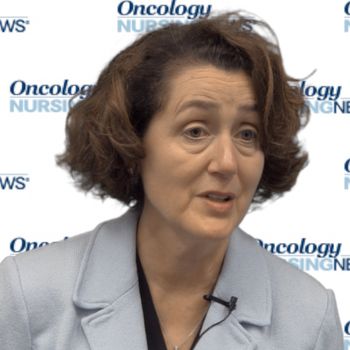
There is not a major difference in outcomes between whole-breast and partial-breast radiation for some patients with breast cancer.
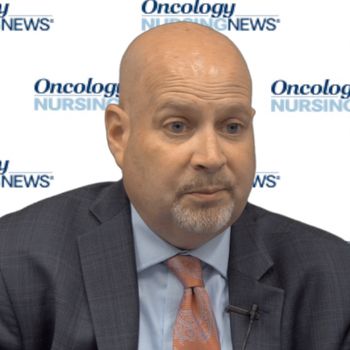
The treatment of gastrointestinal cancers is a team sport, and nurses are key players.

Patients with cancer who are receiving immunotherapy may have improved responses if they have a healthy and diverse gut microbiome.
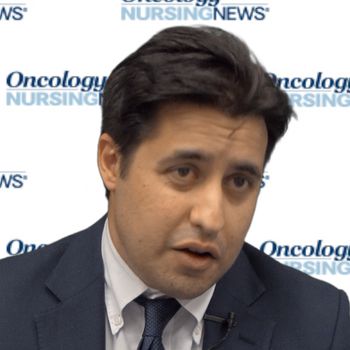
Health-related quality of life (QOL) is becoming an increasingly important endpoint in cancer clinical trials.

While self-reported family cancer history is vital to screen individuals for hereditary cancer risk, its documentation tends to be lacking.

Nurses are there for patients every step of the way.
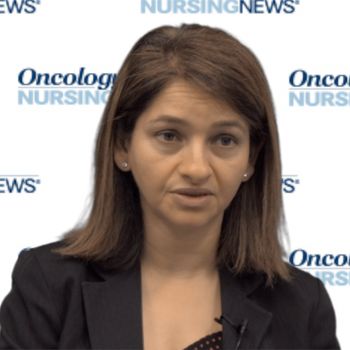
In different stages of multiple myeloma treatment, patients' priorities may change.

Patients with higher tumor mutational burdens tended to be more likely to be depressed, according to recent research.